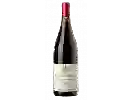
Winery Guillaume Charpentier - Manoir de la FiretiereDomaine Saint Vincent Camille Merlot - Cabernet Sauvignon
This wine is a blend of 2 varietals which are the Cabernet-Sauvignon and the Merlot.
This wine generally goes well with poultry, beef or game (deer, venison).
Food and wine pairings with Domaine Saint Vincent Camille Merlot - Cabernet Sauvignon
Pairings that work perfectly with Domaine Saint Vincent Camille Merlot - Cabernet Sauvignon
Original food and wine pairings with Domaine Saint Vincent Camille Merlot - Cabernet Sauvignon
The Domaine Saint Vincent Camille Merlot - Cabernet Sauvignon of Winery Guillaume Charpentier - Manoir de la Firetiere matches generally quite well with dishes such as recipes .
Details and technical informations about Winery Guillaume Charpentier - Manoir de la Firetiere's Domaine Saint Vincent Camille Merlot - Cabernet Sauvignon.
Discover the grape variety: Cabernet-Sauvignon
Cabernet-Sauvignon noir is a grape variety that originated in France (Bordeaux). It produces a variety of grape specially used for wine making. It is rare to find this grape to eat on our tables. This variety of grape is characterized by small bunches, and small grapes. Cabernet-Sauvignon noir can be found in many vineyards: South-West, Loire Valley, Languedoc & Roussillon, Cognac, Bordeaux, Armagnac, Rhone Valley, Provence & Corsica, Savoie & Bugey, Beaujolais.
Informations about the Winery Guillaume Charpentier - Manoir de la Firetiere
The Winery Guillaume Charpentier - Manoir de la Firetiere is one of wineries to follow in Vallée de la Loire.. It offers 41 wines for sale in the of Loire Valley to come and discover on site or to buy online.
The wine region of Loire Valley
The Loire Valley is a key wine region in western France. It follows the course of the Loire River on its Long journey through the heart of France, from the inland hills of the Auvergne to the plains of the French Atlantic coast near Nantes (Muscadet country). Important in terms of quantity and quality, the region produces large quantities (about 4 million h/l each year) of everyday wines, as well as some of France's greatest wines. Diversity is another of the region's major assets; the styles of wine produced here range from the light, tangy Muscadet to the Sweet, honeyed Bonnezeaux, the Sparkling whites of Vouvray and the juicy, Tannic reds of Chinon and Saumur.
The word of the wine: Attack
First impressions perceived after the wine is put in the mouth.














